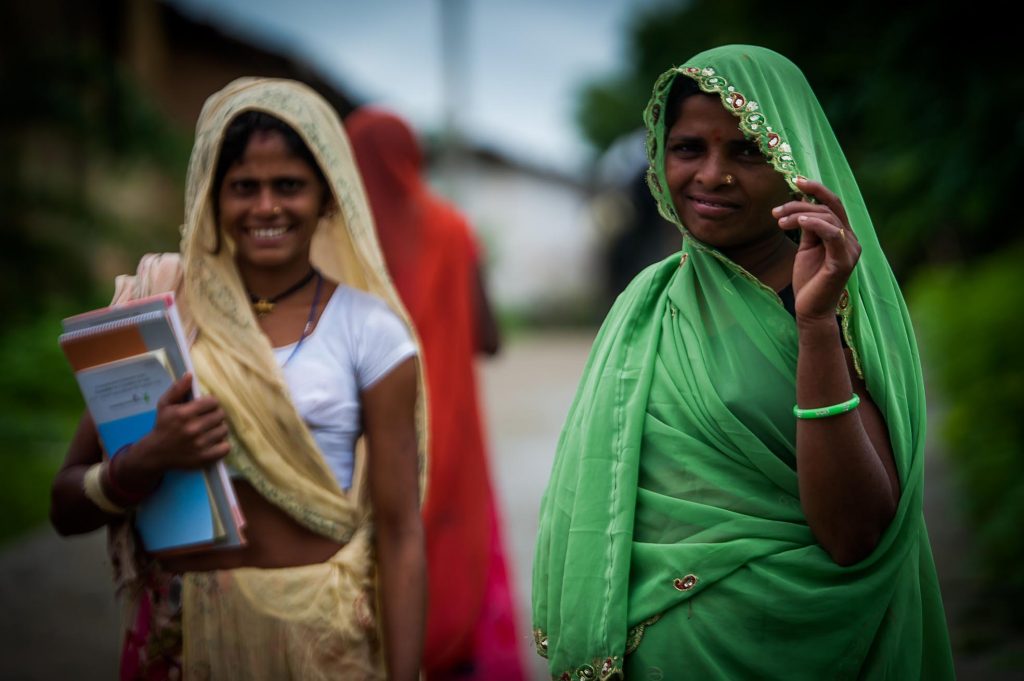Challenging Sociocultural Identities
In India, cultural ethos and norms play an important role in socialisation of men and women. Gender identities and gender relations are critical aspects of culture because they not only shape the way daily life is lived in the family, but also in the wider community and the workplace. Many of the barriers to women’s empowerment and equity lie ingrained in cultural norms. Many women feel these pressures, while others become accustomed to them and start taking it as a way of life. Even if some of the men, legislators, NGOs are aware of the benefits women’s empowerment and participation can have; many are scared of disrupting the status quo. Every step towards women’s equality is a struggle against social norms.
A gender stereotype is a generalised view or preconception about attributes or characteristics that are or ought to be possessed by, or the roles that are or should be performed by women and men. In our culture, the ideal male is seen as competent, stable, tough, confident, strong, accomplished, non-conforming, aggressive and one who is a natural leader. The ideal female is seen as warm, emotional, kind, polite, sensitive, friendly, beautiful, gentle, soft and is the follower. In urban contexts, these gender expectations and stereotypes could be more subtle and indirect. Research shows that these stereotypes create dangerous consequences that limit a person’s full potential and well being. Men and women, because of these stereotypes, are forced to ignore their personality traits, temperament and unique characteristics that make them who they are. Instead there is always a tendency to conform to the cultural notions of ‘masculinity’ and ‘femininity’.
These norms get reflected in many ways which at times are very disturbing. Glorification and appreciation of specific women roles like she feeling happy and contended when she eats at the end after feeding everybody in the family makes women think that this is how it should be (being sacrificial, caring, non-expecting). Being referred to as the family’s ‘honour’ denies women human dignity and self-autonomy. She is no longer seen as an individual, but somebody’s daughter, sister, wife or mother and as this is accepted as a socio-cultural norm it is expected that girls believe and accept this as a reality.
A gender stereotype is particularly harmful when it limits women’s and men’s capacity to develop their personal abilities, pursue their professional careers and make choices about their lives. Young girls’ attitudes and views towards motherhood have an impact on their educational attainment. Research studies have shown that girls who reject traditional gender roles tend to do better at school and achieve higher grades, compared to girls who hold traditional views on gender.
It is a task for policy makers and educational institutions to challenge these gender stereotypes and beliefs. For example, male and female teachers may reproduce traditional male and female roles in the classroom. The female teachers may follow the ‘supportive sympathetic’ archetype, whilst male teachers follow the ‘authoritative’ archetype. Adolescents usually adhere to traditional male and female roles and archetypes as they try to make sense of their roles and identities. Addressing detrimental gender stereotypical views in the classrooms will involve improving teachers’ self-awareness of their own views and educating them regarding how to challenge destructive gender beliefs in the classrooms.
Empowerment approaches for women should not just look at providing services, but also address the multiple layers of discrimination that hinder their access to opportunities. Evidence suggests that despite good intentions, if gender policies do not tackle socio-cultural, economic as well as institutional factors connected with gender; their impact will be limited.
Dr. Alka Srivastava
asrivastava@devalt.org
The views expressed in the article are those of the author’s and not necessarily those of Development Alternatives.




Leave a Reply